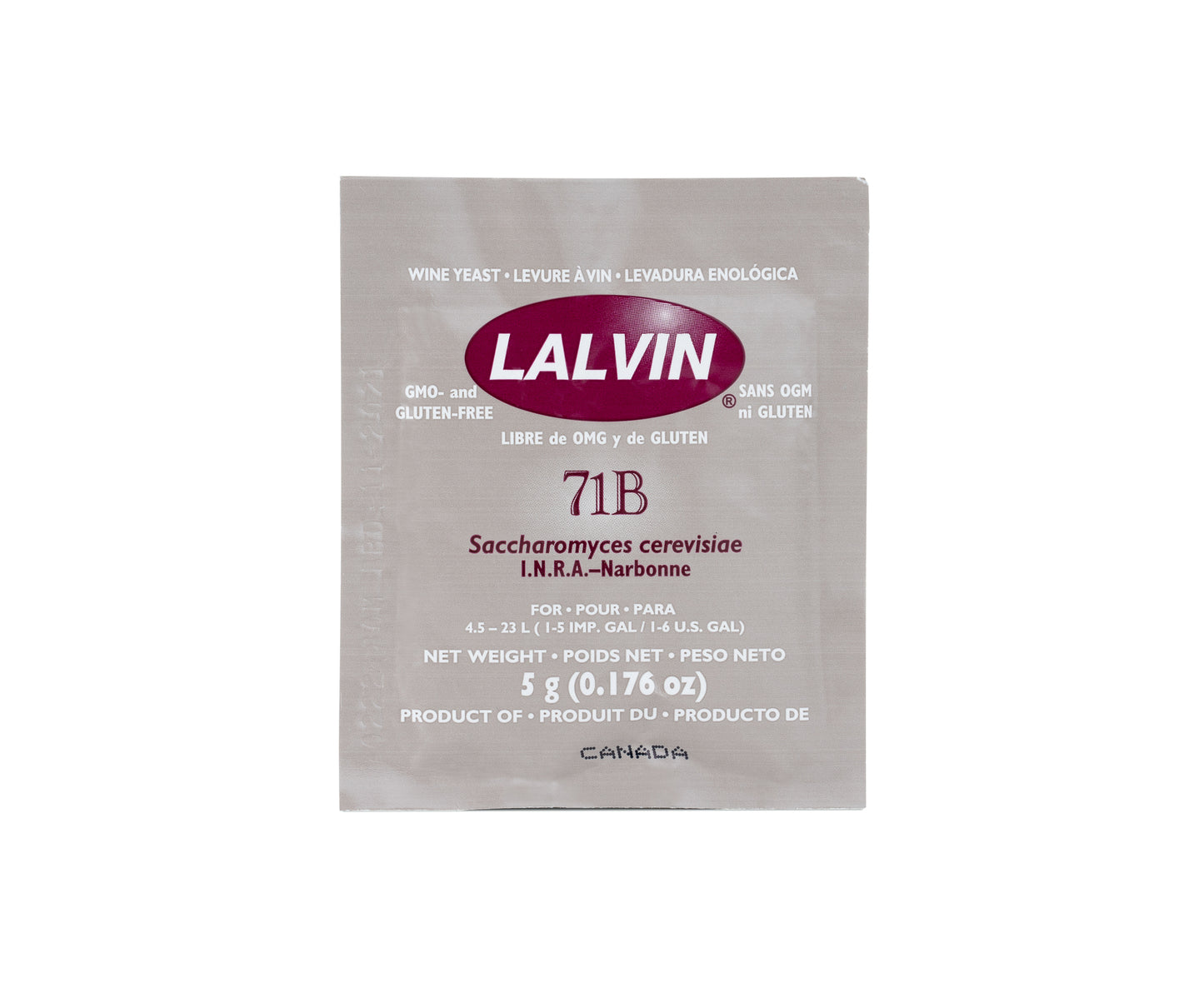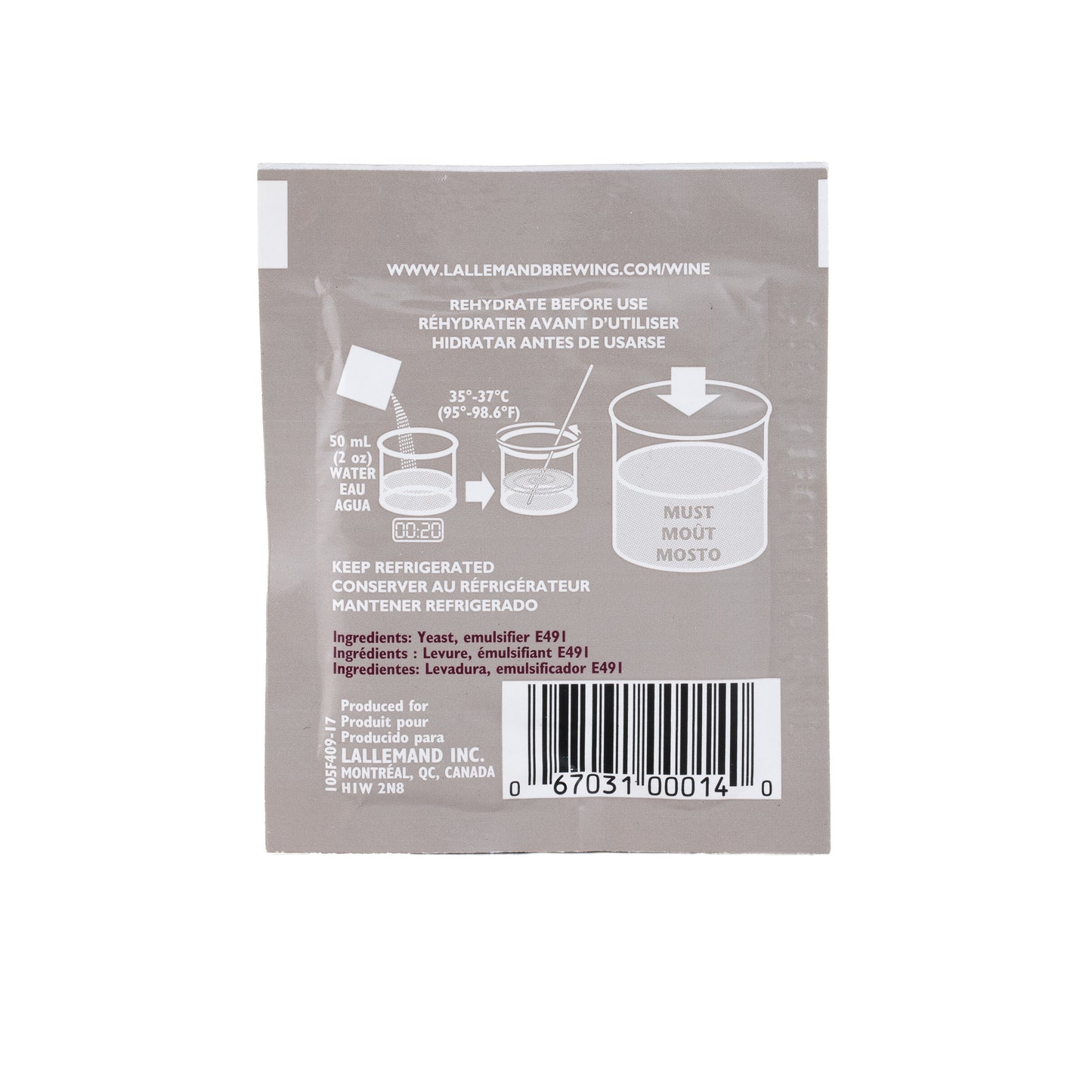Lalvin 71B™ has been isolated and selected by INRA Narbonne (France), for its ability to produce a high level of esters (isoamyl ester), allowing it to reinforce the aromatic profile of wines fermented from neutral varieties. Lalvin 71B™ has the capacity to absorb polyphenolic compounds on its cellular wall which limits tannin structure of young and fresh red wine.
Grape must inoculated with Lalvin 71B™ will easily go through malolactic fermentation, as 20-40% of malic acid can be metabolized by this yeast strain during primary fermentation. Lalvin 71B™ is the perfect choice to create young, fresh and fruity red, rosé and white wines that are easy to drink. It is also a good choice for late harvest wines.
MICROBIOLOGICAL PROPERTIES
Saccharomyces cerevisiae var. cerevisiae
Typical analysis (in compliance with OIV codex):
Viable yeast > 1010 CFU/g
Dry matter > 92 %
OENOLOGICAL PROPERTIES
- Short lag phase and moderately vigorous fermentation
- Low relative nitrogen demand (under controlled laboratory conditions)
- Low H2S production
- Alcohol tolerance 14% v/v *subject to fermentation
- conditions
- Low SO2 production
- High relative glycerol production
- Fermentation temperature: 15-30 °C (59-86 °F)
- Competitive killer factor: no, Lalvin 71B™ is a sensitive strain
- Malolactic-bacteria compatibility: very high
- Malic acid consumption: high
- Medium foam producer
USAGE
DOSAGE RATE: 1 x 5g sachet for 4.5 – 23L
1. Rehydrate the yeast in 50ml of water, at a temperature between 35-37°C (95-98.6°F).
2. Dissolve by gently stirring and wait for 20 minutes.
3. Add the must. The difference in temperature between the must to be inoculated and the rehydration medium should not be higher than 10°C (if necessary, acclimatize the temperature of the medium by slowly adding must).
4. The total rehydration time should not exceed 45 minutes.
5. It is crucial that a clean container is used to rehydrate the yeast.
6. Rehydration in must is not recommended.




